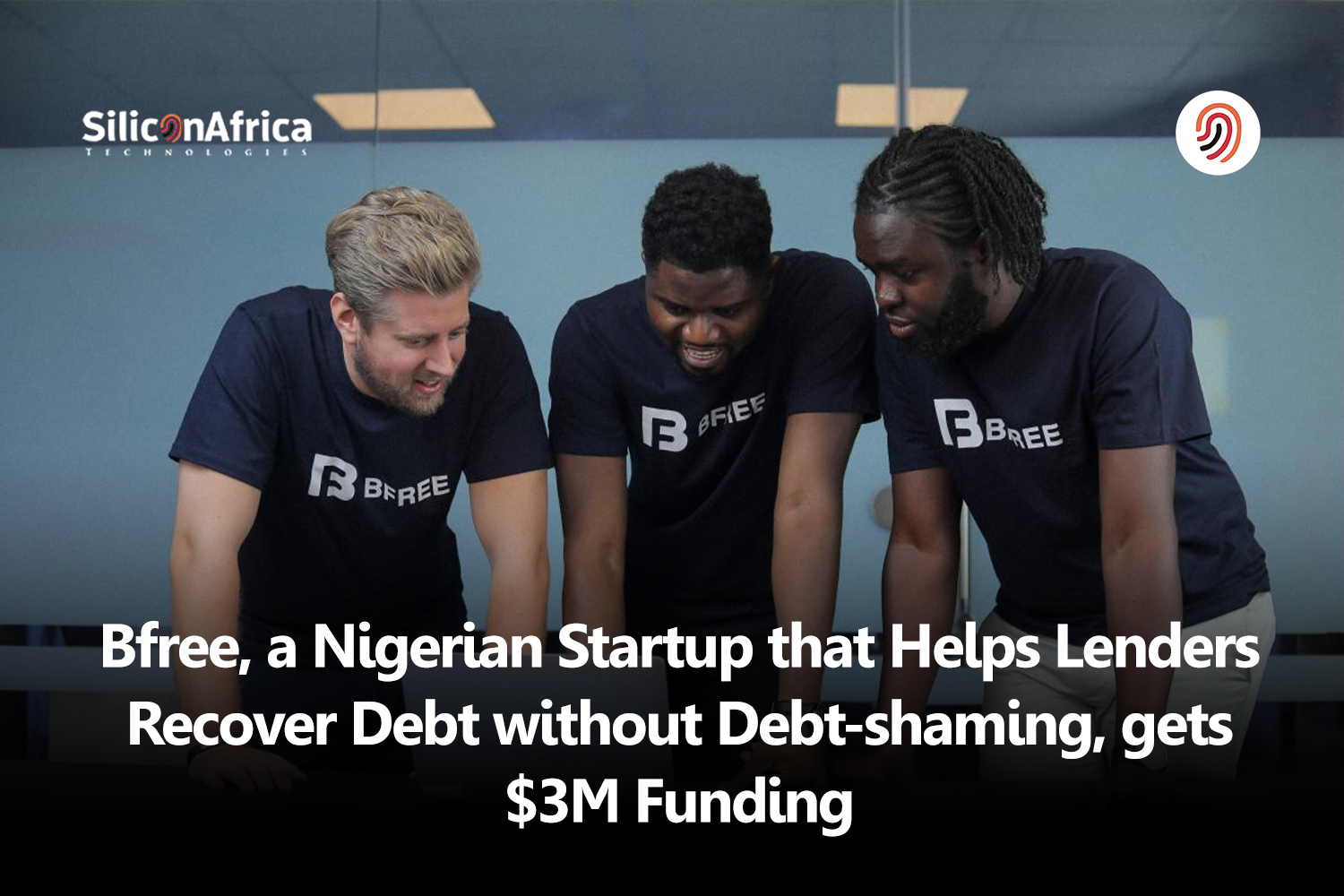Physical Address
60 Ekwema Cres, Layout 460281, Imo
Physical Address
60 Ekwema Cres, Layout 460281, Imo

$3 million in funding has been given to the Nigerian tech startup Bfree, which was established to automate and present processes for improving ethical debt.
The founders of BFREE were extremely dissatisfied with the credit collection options that were available, as they mostly relied on humiliating customers, even after years of being prominent figures in the global fintech industry.

With the $3 million in funding, they will be able to grow their business and improve their debt recovery platform with the aid of this investment. It’s encouraging to see businesses like Bfree get the backing they need to keep improving the financial industry.
They made the decision to rewrite the story to focus more on the needs of the consumer and use technology and morality to help clients achieve financial freedom and debt relief in a sustainable manner.
The debt recovery platform from Bfree stands out thanks to a few special features. They put an emphasis on courteous and sympathetic communication with borrowers in order to recover debt without debt-shaming.
In order to improve the effectiveness and efficiency of the recovery process, they also make use of technology. It’s a fantastic strategy that encourages equity and comprehension in the lending sector.
Bfree uses artificial intelligence tools and systems in their debt recovery platform to make use of technology. They have created a digital platform that streamlines and lessens the need for manual labor by automating some steps in the debt recovery process. This enables them to digitally manage the entire process, track payments, and communicate with borrowers. Bfree is able to offer a more efficient and successful debt recovery experience by embracing technology.
As part of its collections-as-a-service offering, the startup introduced a number of scalable debt recovery techniques, such as a self-service platform that lets borrowers create new payment plans and conversational AI tools like chatbots and callbots. These tools guarantee borrowers receive compassionate after-sales care and take appropriate action based on behavioral and financial data.
Although 92% of Bfree’s customer interactions are automated, the company still maintains a small team-manned call center in case customers call or need follow-up phone calls. Additionally, it introduced Workflow, a SaaS for loan collection management that targets businesses with in-house collection teams or those that are hesitant to outsource.
In Africa, where collectors still largely rely on antiquated methods like call centers to follow up on settlements, the startup is presumably the only tech-enabled credit recovery company.
While digital lenders were initially a major customer base for Bfree, according to CEO Julian Flosbach (who co-founded the company with COO Chukwudi Enyi and CPO Moses Nmor), the company now only works with a small number of these lenders because banks account for up to 70% of its revenue.
“We basically had to either increase pricing or let go of a lot of smaller customers because of the immense pressure to increase our margins,” Flosbach said. He also mentioned that working with banks makes financial sense due to their larger loan portfolios than those of digital lenders.
Although the startup has worked with 45 clients since its founding, it currently only has 14 clients.
Its clientele has expanded over time to include some of the biggest banks in Ghana, Kenya, and Nigeria. With the $2.95 million in new funding it recently received in a round headed by Capria Ventures, the company intends to keep growing in these markets.
Including the undisclosed $1.1 million bridge round from the previous year, Angaza Capital, GreenHouse Capital, Launch Africa, Modus Africa, Axian CVC, and several angel investors also took part in the round, increasing the total amount of funding raised to $6.5 million.
The startup also intends to establish a secondary debt market so that non-performing loans (NLPs) from African banks can be purchased by hedge funds and other third-party investors seeking to diversify their holdings. Debt buyers buy bank loans for a small percentage of the debt’s face value with the intention of profiting from collection. Banks offer NLPs in order to reduce risk, oversee loan portfolios, and generate cash flow.
“We gather a lot of information about borrowers, particularly those who are in default. For the first time, we were able to create an algorithm that is capable of valuing these assets. If a loan is delinquent for, say, ninety days, we can estimate how much it will cost and how likely it is to be repaid over the following year. Then, we purchase these assets from banks and remove them from their balance sheets, enabling them to transfer the risk,” Flosbach stated.
He continued by saying that banks can also use their analytics solution to get insight into the secondary debt markets.
It’s amazing how the startup balances its pursuit of excellence with the borrowers’ mental well-being. The other well-known loaners in Africa are not like this.